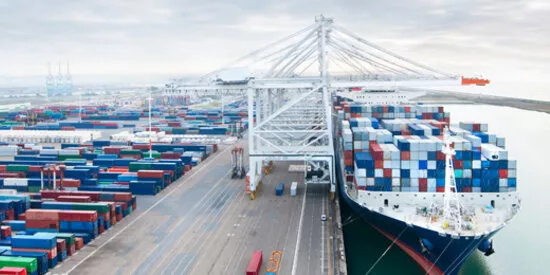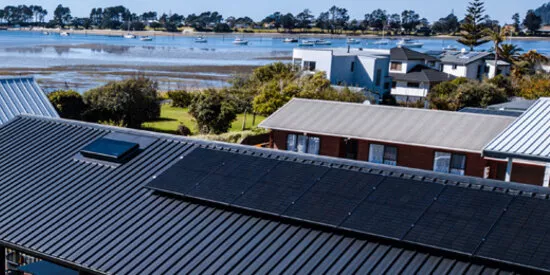
The role of technology and trade finance in decarbonising supply chains
The global push for sustainable supply chains is strengthening the link between digitalisation and decarbonisation.
With the environmental and social credentials of global supply chains under ever-greater scrutiny, carbon intensity is becoming an increasingly important factor in how companies work with suppliers around the world.
To keep up with the surge in demand for emissions data, companies and trade finance providers are turning to technology solutions to help improve transparency and encourage more sustainable business practices.
“Supply chain reprofiling is getting more common, and there's not enough time for companies to contact all their suppliers to ask them what their emissions are,” says Carlos Zapata Lui, Vice President of CarbonChain, an AI-powered platform that enables companies to track, report and reduce their supply chain emissions. “Technology will help unlock that process and decarbonise those supply chains.”
Gathering a full picture of a company’s carbon footprint is a challenging process. This includes not only their scope 1 and 2 emissions – those produced directly by their operations, and by the energy they buy, respectively, but also their scope 3 emissions – those of their supply chains, which are the hardest to measure and are often inaccurate.
“You would be surprised at how many companies don’t have the full grasp of the emissions associated with their business model,” he adds. “Some information is opaque, and sometimes it’s non-existent.”
Artificial Intelligence (AI) can help with issues like these and is key to CarbonChain’s business. For instance, the company uses machine-learning models when assessing vessel capacity levels and their emission factors.
Consultancy BCG calculates that the use of AI for corporate sustainability could generate between US$1.3 trillion and US$2.6 trillion in value of additional revenue by 2030.1
Trade finance is an important consideration in any company’s global supply chain, because it enables goods to move around the world – often across huge distances. As a result, banks are also looking for better data to understand the environmental impact of the shipments they finance.
“Trade finance plays a key role in the decarbonisation of supply chain and is itself challenged by the need for digitalisation for being a very paper-intensive industry”, says Shujue Cai, Head of Structured Trade and ESG Transaction Banking for Asia Pacific at Societe Generale. “The future of trade finance is much impacted by, on the one hand, how it can be part of the [low-carbon] transition and on the other how it can be modernised for digitalisation,” she added.
Integrating emissions data into trade finance will allow companies and lenders to assess – and potentially reduce – the carbon intensity of their supply chains, says Zapata .
Societe Generale offers sustainability-linked trade facilities to encourage progress towards sustainability performance targets, such as a defined reduction of carbon emissions. This includes a pilot agreement with commodities trading firm Concord Resources, using CarbonChain data to establish climate-related key performance indicators for a sustainability-linked commodity trade financing.2 IXM, a global metals trader owned by China-based CMOC Group, has also been a part of a pilot, and has since integrated climate-related key performance indicators in a variety of financings.3
Keeping up with regulation
Meanwhile, regulatory developments are also helping to drive the ESG and digitalisation trends in trade finance.
For example, the European Union’s Carbon Border Adjustment Mechanism (CBAM) started its transitional phase in October 2023, with the aim of equalising the price of carbon emissions between domestic products and imports.4
“Other Organization for Economic Cooperation and Development (OECD) countries are also looking to implement their own versions of CBAM,” says Lui. “This will represent a reordering of global supply chains.”
“Real-time emission dashboards are on the horizon, which would enable forecasting of carbon price insights before any trade takes place,” he adds.
Carlos Zapata Lui urges companies to take action on measuring and managing emissions right away. “The regulation environment will only get tougher, but it’s better to start and adjust in the right direction, and not be late to the party.”
1. https://www.bcg.com/publications/2021/ai-to-reduce-carbon-emissions
2. https://www.carbonchain.com/blog/concord-resources-ltd-societe-generale-sign-pioneering-agreement-to-tackle-commodity-carbon-footprint
3. https://wholesale.banking.societegenerale.com/en/news-insights/all-news-insights/news-details/news/innovating-help-trade-commodity-clients-reduce-their-carbon-emissions/
4. https://ec.europa.eu/commission/presscorner/detail/en/ip_23_4685




